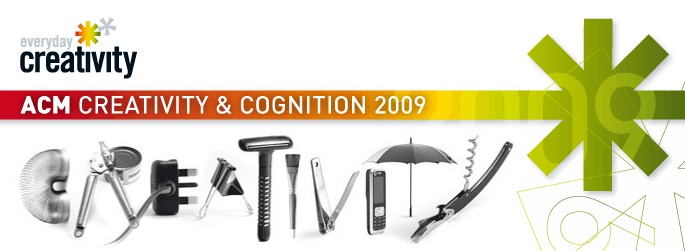
【發表】“WSN: a building block for Mass Creativity and Learning“論文獲"ACM CC 2009" 研討會workshop審查通過
By admin • 八月 20th, 2009 • Category: FBI News •小牛1號、大虎0號的立場聲明(Position paper)「Wireless Sensor Networks: a building block for Mass Creativity and Learning」 獲得ACM Creativity & Cognition 2009國際研討會論文審查通過。
Su-Chu Hsu and J. D. Tygar. “Wireless Sensor Networks: a building block for Mass Creativity and Learning“. ACM Creativity & Cognition 2009, Understanding the Creative Conversation Workshop, 2009.
ACM CC 2009網址:www.creativityandcognition09.org
研討會時間: 2009.10.27-30
研討會地點: UC Berkeley

The 7th Creativity and Cognition Conference (CC09) embraces the broad theme of Everyday Creativity. This year the conference will be held at the Berkeley Art Museum (CA, USA), and asks: How do we enable everyone to enjoy their creative potential? How do our creative activities differ? What do they have in common? What languages can we use to talk to each other? How do shared languages support collective action? How can we incubate innovation? How do we enrich the creative experience? What encourages participation in everyday creativity?
CONFERENCE THEMES AND TOPICS
The Creativity and Cognition Conference series started in 1993 and is sponsored by ACM SIGCHI. The conference provides a forum for lively interdisciplinary debate exploring methods and tools to support creativity at the intersection of art and technology. We welcome submissions from academics and practitioners, makers and scientists, artists and theoreticians.
This year’s broad theme of Everyday Creativity reflects the new forms of creativity emerging in everyday life, and includes topics of:
* Collective creativity and creative communities
* Shared languages and participatory creativity
* Incubating creativity and supporting Innovation
* DIY and folk creativity
* Democratising creativity
* New materials for creativity
* Enriching the collaborative experience
We welcome the following forms of submission:
* Empirical evaluations by quantitative and qualitative methods
* In-depth case studies and ethnographic analyses
* Reflective and theoretical accounts of individual and collaborative practice
* Principles of interaction design and requirements for creativity support tools
* Educational and training methods
* Interdisciplinary methods, and models of creativity and collaboration
* Analyses of the role of technology in supporting everyday creativity
SUBMISSIONS
This year we accepted just 23% of the submitted papers after a thorough reviewing process. Submissions came from across the globe, from New Zealand to the UK, from France to Japan, and from Mexico to the USA.
Submissions are now closed.

admin is
